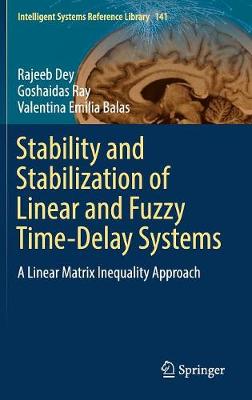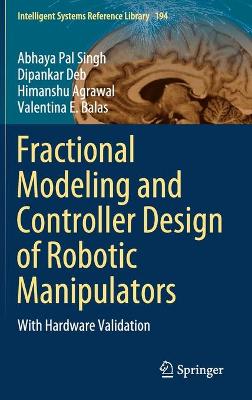Intelligent Systems Reference Library
3 primary works
Book 141
Stability and Stabilization of Linear and Fuzzy Time-Delay Systems
by Rajeeb Dey, Goshaidas Ray, and Valentina Emilia Balas
This book provides a clear understanding in formulating stability analysis and state feedback control of retarded time delay systems using Lyapunov's second method in an LMI framework. The chapters offer a clear overview of the evolution of stability analysis in terms of the construction of a Lyapunov functional and use of the integral inequalities in order to reduce the gap of delay upper bound estimate compared to frequency domain method through existing and proposed stability theorems. Power system engineering problem has been presented here to give readers fair idea on applicability of the model and method for solving engineering problems. Without deviating from the framework of analysis more complex dynamics of the system have been dealt with here that includes actuator saturation and thereby ascertaining local stability for an estimated time-delay and domain of attraction. Nonlinearity in a time-delay system has been dealt with in the T-S fuzzy modeling approach.
This book is useful as a textbook for Master's students and advanced researcher working in the field of control system engineering, and for practicing engineers dealing with such complex dynamical systems. The strengths of the book are lucidity of presentation, lucidity of solution method, MATLAB programs given in the appendix that help the novice researcher to carry out research in this area independently, clear idea about the formulation of desired stability and control problem in a LMI framework, application problem provided can motivate students and researcher to recast their problems in the similar framework easily, helpful for readers to use the stability (stabilization) conditions or formulate their own stability conditions easily for a complicated linear or nonlinear dynamical system.
Book 161
Adaptive and Intelligent Control of Microbial Fuel Cells
by Ravi Patel, Dipankar Deb, Rajeeb Dey, and Valentina E. Balas
This book addresses a range of solutions and effective control techniques for Microbial Fuel Cells (MFCs), intended as a response to the increased energy consumption and wastewater production stemming from globalization. It describes the fundamentals of MFCs and control-oriented mathematical models, and provides detailed information on uncertain parameters. Various control techniques like robust control with LMI, adaptive backstepping control, and exact linearization control are developed for different mathematical models.
In turn, the book elaborates on the basics of adaptive control, presenting several methods in detail. It also demonstrates how MFCs can be developed at the laboratory level, equipping readers to develop their own MFCs for experimental purposes. In closing, it develops a transfer function model for MFCs by combining a system identification technique and model reference adaptive control techniques. By addressing one of the most promising sources of clean and renewable energy, this book provides a viable solution for meeting the world's increasing energy demands.
Book 194
Fractional Modeling and Controller Design of Robotic Manipulators
by Abhaya Pal Singh, Dipankar Deb, Himanshu Agrawal, and Valentina E. Balas
This book at hand is an appropriate addition to the field of fractional calculus applied to control systems. If an engineer or a researcher wishes to delve into fractional-order systems, then this book has many collections of such systems to work upon, and this book also tells the reader about how one can convert an integer-order system into an appropriate fractional-order one through an efficient and simple algorithm. If the reader further wants to explore the controller design for the fractional-order systems, then for them, this book provides a variety of controller design strategies. The use of fractional-order derivatives and integrals in control theory leads to better results than integer-order approaches and hence provides solid motivation for further development of control theory. Fractional-order models are more useful than the integer-order models when accuracy is of paramount importance. Real-time experimental validation of controller design strategies for the fractional-order plants is available. This book is beneficial to the academic institutes for postgraduate and advanced research-level that need a specific textbook on fractional control and its applications in srobotic manipulators. The book is also a valuable teaching and learning resource for undergraduate and postgraduate students.


